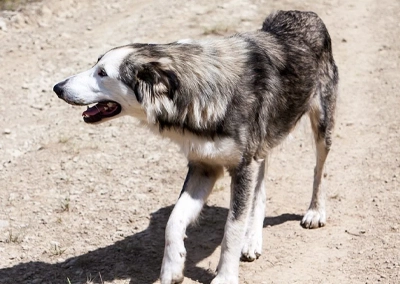Dogs have been present in Southeast Asia since ancient times, with evidence suggesting that they were among the earliest animals to be domesticated by humans. Early civilizations in the region, such as those in present-day Myanmar, Thailand, Cambodia, and Vietnam, likely had domesticated dogs that served various purposes, including hunting, guarding, and companionship. Over time, indigenous breeds of dogs emerged in different regions of Southeast Asia, shaped by their local environments, human interactions, and cultural practices. These dogs were often valued for their versatility, intelligence, and adaptability to diverse climates and terrains. In urban and rural areas of Southeast Asia, street dogs, often referred to as “community dogs” or “pariah dogs,” are a common sight. These dogs are typically of mixed ancestry and roam freely in neighborhoods, scavenging for food and forming bonds with local residents.
Village Dog Southeast Asian

